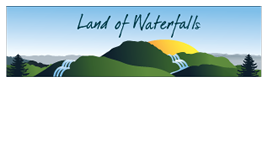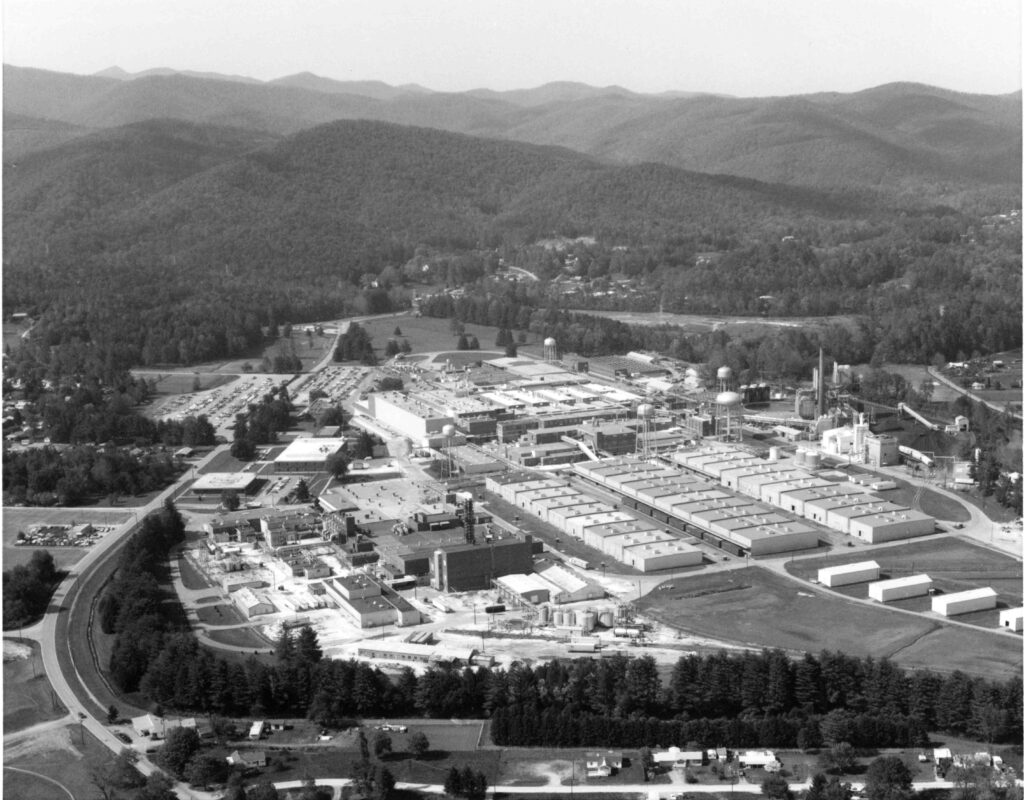
On March 7, 2024 at 6 pm, the All Things Appalachia series at the Transylvania County Library will show the documentary “Ecusta: The First 50 Years” followed by time for sharing and discussion. This week’s Picturing the Past is a brief early history of the Ecusta Paper Corporation in Transylvania County, NC.
Harry Hans Straus was born in Mannheim, Germany on January 9, 1884. Known as “Uncle Harry” to employees, his leadership was pivotal to the creation of Straus’ Ecusta Paper Corporation in the Pisgah Forest area of Transylvania County in 1939.
One of Harry Straus’ innovative ideas stemmed from his past working in other industries: Endless Belt production. The Ecusta corporation created woven belts used in machinery. These were woven loops of Irish linen or cotton meticulously woven and strengthened into a larger, seamless loop used for delicate rolling and packaging, such as factory-rolled cigarettes, spaghetti noodles, and soda straws. At its peak, Ecusta was one of the largest producers of these machinery belts in the nation.
As Ecusta developed, there was a great deal of experimentation in producing the finest cigarette paper. Unlike many other kinds of paper, cigarette paper requires a clean burn with little to no ash or impurities. For this reason, all cigarette paper is made from previously unused paper and cannot be recycled, as it burns away during use. The fact that the paper is essentially consumed makes the quality of paramount importance.
It had previously been thought that France was the only place where such fine quality paper could be produced, due to their unparalleled water quality. Straus found the same water quality in Transylvania County and chose the Davidson River site, as it was known, for that and other reasons.
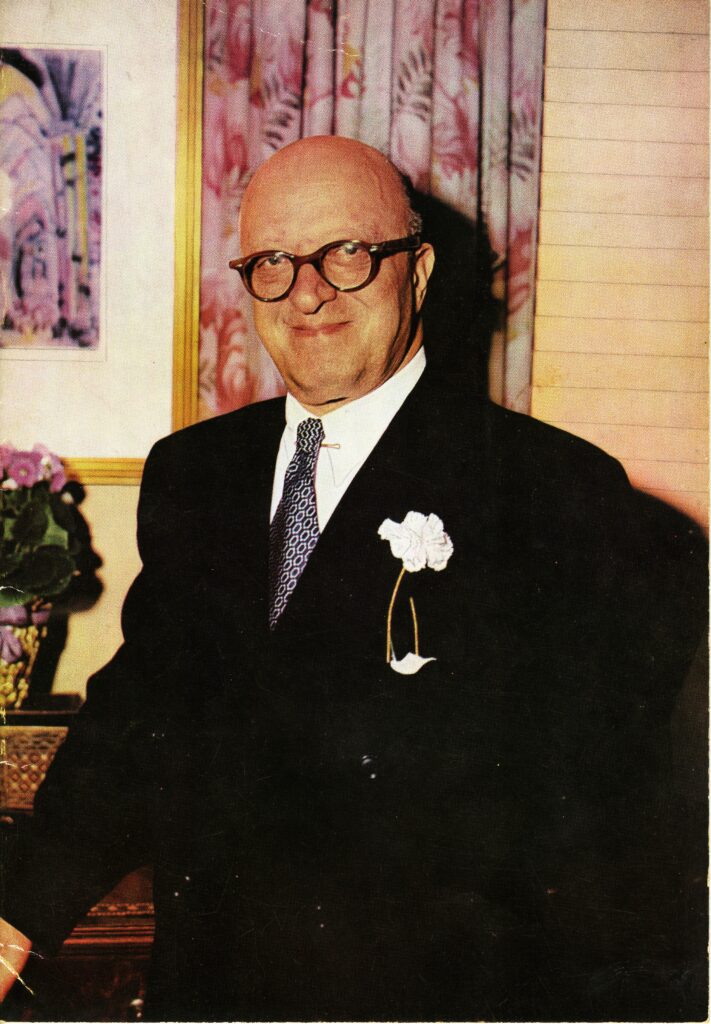
Straus was an innovator in other ways as well. Tired of the supply chain issues of obtaining lining rags from Europe to recycle into fine cigarette paper, he invested in domestic production of flax in California and Minnesota. Ecusta scientists were able to create a new method for separating the flax fibers from the husk using flotation, thus innovating the industry. Flax proved to be a wise decision after the onset of the second World War when supply chains to Europe were limited and a domestic source of cigarette paper became even more desirable.
For the creation of the manufacturing site, plots of land totaling 225 acres were acquired for the grand total of about $50,000 from the following local landowners: Frank Patton, Julia Deaver, Carolyn T. Dorsett, W.D. Deaver, Brevard-Davidson River Presbyterian Church, John C. Deaver, McK. Fetzer and wife; Jacksie Wolf and husband; Eugene and Lena W. Reeves; Carr Lumber Company, and H.H. Patton.
The name Ecusta was intentionally chosen as the new company looked for a Cherokee word to be their name. The plant founders knew that the land they were building on was once part of Cherokee hunting land, and so to honor the history of the region, they held a contest to name it. Ecusta, translated as “rippling waters,” was the winner.
Harry Straus had many personal and business contacts to help him get started in the paper business, and many of the same men became part of his leadership team when the company was at last operational. He assigned top positions to his most trusted associates, and this included elements of the plant that extended beyond production. This meant having a social director to organize the picnics, hiking and dances; a sports director for the numerous sports teams sponsored by Ecusta; and a a music director who organized the Ecusta band. The Ecusta site also had a cafeteria with food for sale at-cost and seating for everyone regardless of purchase, a library run by the local head librarian, and an employee-accessible recreational lake. The employee monthly magazine, The Echo, highlights the many social connections and activities provided for Ecusta employees. Straus was committed to the surrounding community as well. He and Ecusta contributed to the hospital construction fund, local school buildings, and more.
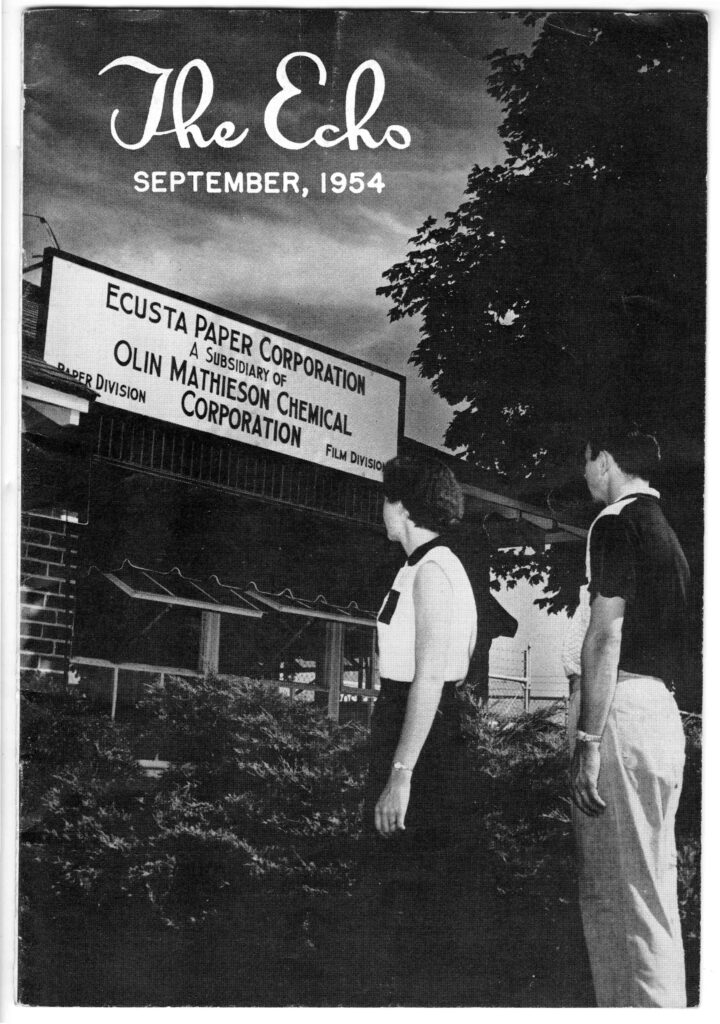
Perhaps due to failing health, in the late 1950s Straus sought new executives for the leadership team. Olin Mathieson purchased Ecusta in November 1949, ending the Ecusta era. With this shift in leadership, some of the elements that had made the company so appealing to workers were preserved, but some were lost. Harry Straus passed away on February 27, 1951, but his former employees held him in high esteem and honor the legacy of his memory.
Photographs and information for this column are provided by the Rowell Bosse North Carolina Room, Transylvania County Library. This article was written by Local History Librarian Laura Sperry. Sources available upon request. For more information, comments, or suggestions, contact NC Room staff at [email protected] or 828-884-1820.

